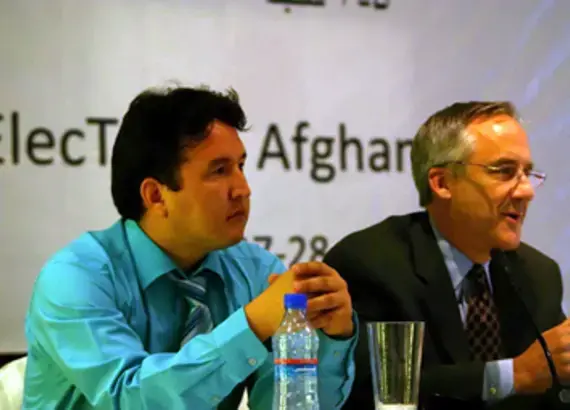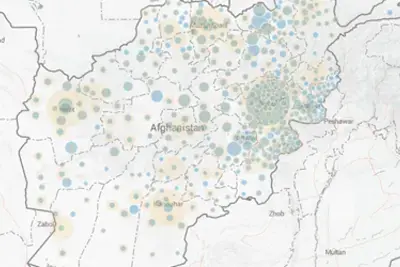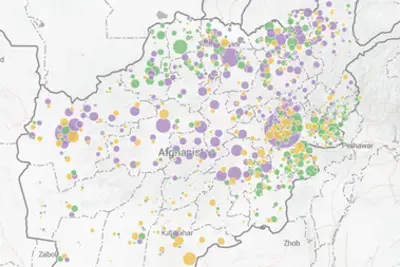
Success Story
Afghanistan “ElecTech” conference engages government officials on the power of technology in elections
The legitimacy of Afghanistan's next government will hinge in large measure on whether next April's elections are regarded as credible, particularly in light of fraud that marred the country’s polls in 2009 and 2010.
In September, NDI brought together local and international experts to talk about how digital technology could be used to enhance public participation and make the 2014 election process more transparent. At a two-day ElecTech conference in Kabul, 60 participants - including senior officials from government, civil society, the international community and the private sector - shared and learned about approaches and tools, such as SMS, social media and electronic voting, that could be adapted for use in Afghanistan. These tools would help voter education campaigns reach a wider audience to ensure citizens are fully aware of the potential for fraud — such as occurred in 2009 and 2010 — as well as coordinate civil society election observation efforts, and empower citizens to communicate their concerns to government officials and watchdog organizations.
Four panels covered opportunities and challenges in the 2014 presidential and provincial council elections, and how technology could be used to engage citizens in the elections and improve delivery of services such as online health care surveys, mobile banking, and education through text-message based social media networks. Others discussed technology-based voter education, and how to use technology such as SMS to gather information from election observers and promote transparency.
Through the conference, many Afghan officials were introduced to the role that digital technology could play in making elections more transparent and educating citizens about the election process.
In breakout sessions, participants were able to speak directly with senior national government officials and dive deeper into concerns such as the lack of public confidence in the election process; security risks, such as attacks against candidates or public violence; women’s empowerment; and how technology could address many of these issues. For example, the Internet and SMS can make it easier for candidates, civil society organizations and political parties to communicate without travelling, lessening security risks for citizens and candidates. But participants noted that though mobile technology has penetrated urban areas, in many rural areas the most effective way to communicate for voter education is still through more traditional means, such as attending mosques or community meetings.
One of the recommendations from the breakout sessions was to use interactive voice response (IVR) technology to accommodate voters with low literacy levels. For example, instead of texting individuals to ask them if they knew the location of their polling center, an IVR system could call each voter. If the voter didn’t know the location, the automated IVR system would provide it.
Participants also expressed interest in how electronic voting and voter registration systems could be a valuable tool for reducing fraud by limiting the likelihood of tampering with or loss of paper ballots.
“The more we use technology, the more we will be able to [...] do our work in a proper manner,” said Ziaul Haq Amarhkil, chief electoral officer of the Independent Election Commission. “We will try our best to use these suggestions to have the best, on time elections.”
Read more:
Published Oct. 29, 2013


